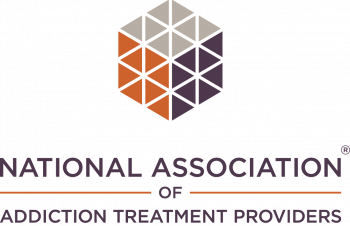Cognitive-behavioral therapy (CBT) has been around since the 1970s and, today is considered a part of traditional mental health therapy. If you are struggling with anxiety, it can be difficult to make everyday decisions. If you have not previously gone to therapy, the prospect of going for the first time might feel intimidating. Positive and effective mental health counselors are trained to manage a wide range of clients. CBT practitioners are especially aware of clients’ worries and needs. If you are struggling with anxiety, depression, or other mental health challenges, know that the professionals at TruHealing Gaithersburg are here to help. Our cognitive-behavioral programs are personalized to meet the needs of individual clients. Reach out to us today at (833) 625-0398 to speak with a trained representative about the benefits of our cognitive-behavioral therapy program and other treatment options.
Addiction, Co-Occurring Disorders, and Dual Diagnosis
If you are recovering from addiction, it’s possible you have a co-occurring mental health disorder and are in need of a dual diagnosis. Those who develop substance use disorders often have underlying mental health issues that need to be addressed.
Mental health counselors who practice CBT are trained to diagnose co-occurring disorders and determine if clients are in need of a dual diagnosis. Treating an individual’s core issues, not just the results of those issues, is an important aspect of relapse prevention.
Individuals who develop addictions often receive a dual diagnosis. Common diagnoses associated with substance abuse include:
- Generalized anxiety disorder (GAD)
- Major depressive disorder (MDD)
- Post-traumatic stress disorder (PTSD)
- Mood spectrum disorders
- Bipolar disorder
- Personality disorders
Once a person receives a proper diagnosis, it is then possible to properly treat them in an appropriate way.
Anxiety is an extremely common reason why individuals abuse substances as a coping mechanism. In CBT therapy, clients learn healthy and positive coping strategies, life skills with real-world applications, ways to avoid high-risk triggers, stress management techniques, and other useful strategies for managing anxiety in sober life.
How CBT Can Treat Anxiety
Cognitive-behavioral therapy (CBT) is based on the concept that a person’s perceptions are deeply connected to their reactions. In other words, how a person interprets a situation directly relates to their understanding of their experience.
The way individuals perceive their experiences is distorted because they are looking at them from a personal perspective. It’s easy to misunderstand the full picture of a given situation and, as a result, fail to come to logical conclusions. CBT helps clients take a step back and better understand why certain feelings, beliefs, and actions results in particular outcomes. The goal is to change your thought processes and behaviors so they are better aligned with realistic outcomes.
Understanding how and why individual choices yield specific results makes for more predictable and comprehensible outcomes. Put another way, CBT helps individuals better understand how to navigate personal relationships. Having realistic expectations and knowing why what you say or do results in particular responses from others can help relieve the anxiety associated with not understanding why your statements and actions have results that do not make sense to you.
After going through a CBT treatment plan, clients should feel like they have made progress working towards their intended goals. There’s always the opportunity to set up a new treatment plan and a new set of goals.
CBT Sessions and Goals
CBT is geared towards helping clients understand their thoughts and actions using techniques of problem solving and education. Learning how to navigate relationships and situations in positive and thoughtful ways helps avoid negative behaviors and unhealthy life choices. Once a person understands how their statements and actions are perceived by others, they can have improved interactions, lessen anxiety, and engage in situations with a more positive and healthy attitude.
Strategies for changing thoughts and behaviors can include:
- Improving self-esteem, self-worth, and self-confidence
- Developing techniques to better cope with stressful situations
- Remaining calm in anxiety-producing situations
- Learning to recognize and accept harmful thoughts and emotions
- Understanding other people’s intentions
- Learning to control your emotional responses to stressful interactions
CBT therapy is goal-oriented. CBT asks clients to address and reconsider connections between their thoughts, emotions, and behaviors. Counselors work with clients to determine a treatment plan and then create a set number of sessions to address a particular issue a client is working through. Along the way, therapists make adjustments to ensure clients continue to work towards their established goals and make the most of out of individual sessions.
The CBT practitioners at TruHealing Gaithersburg are ready to help you learn to tackle your anxiety. In guided sessions, our counselors can help clients with underlying issues including:
- Learning how to manage anxiety
- Strategies to manage high-risk situations
- Learning to avoid high risk situations
- Better understanding instances of distorted thinking
- Teaching clients to recognize distorted perceptions of reality
Contact TruHealing Gaithersburg Today About the Benefits of CBT for Anxiety
The CBT mental health counselors at TruHealing Gaithersburg work with clients to develop personalized treatment plans to address anxiety, mental health, distorted thinking and behaviors, and help clients learn to better navigate life situations.Contact TruHealing Gaithersburg today at (833) 625-0398 to speak with a trained representative about the benefits of CBT for anxiety as well as our services for addiction treatment, relapse prevention, and lasting sobriety.









